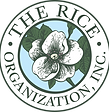How Organic Landscaping Protects Houston’s Waterways This Fall
- Laura Neff
- Oct 26, 2025
- 2 min read

Understanding Runoff: Why It Matters
During fall, Houston typically experiences increased rainfall. When lawns are treated with synthetic fertilizers, herbicides, and pesticides, those chemicals don’t stay put. Rain washes them off lawns, driveways, and garden beds — sending pollutants straight into storm drains, and ultimately, into Houston’s bayous and waterways.
This runoff can:
Deplete oxygen levels in the water (hurting fish and aquatic life)
Contaminate drinking water sources
Disrupt delicate ecosystems along the bayous
That’s why organic landscaping is more than just a gardening trend — it’s a sustainable solution for the community.
Healthy Soil = Cleaner Water
The foundation of organic landscaping is healthy soil. Instead of relying on quick-fix chemical fertilizers, we feed the soil naturally with compost, mulch, and organic nutrients.
This creates soil that:
Absorbs more rainwater and reduces runoff
Filters impurities before they reach the storm drains
Encourages deep root growth for stronger plants
By improving the soil’s structure, your landscape acts like a natural sponge, helping rain soak in rather than wash away.
Native Plants and Natural Buffers
Native plants are not only beautiful — they’re powerful protectors of Houston’s environment. Because they’re adapted to our local soil and weather, they require less water, fertilizer, and maintenance.
When planted strategically, they also serve as natural filters that trap sediment and pollutants before they reach waterways.
A few great fall natives to include in your organic landscape:
Gulf Coast Muhly Grass – adds texture and filters runoff
Texas Lantana – attracts pollinators and thrives in dry soil
Purple Coneflower – hardy and supports local ecosystems
At Rice Organization Inc., we love combining native plant design with organic methods to keep landscapes both beautiful and environmentally responsible.
Chemical-Free Lawn Care Makes a Big Impact
Traditional fertilizers and pesticides may promise quick results, but they come at a cost. These chemicals often leach into the soil and travel far beyond your yard. Organic lawn care, on the other hand, nourishes your grass while keeping toxins out of Houston’s bayous.
Simple organic swaps include:
Using compost tea or natural soil amendments for fertilization
Applying corn gluten meal to suppress weeds naturally
Encouraging beneficial insects for pest control instead of chemicals
It’s a cleaner, safer approach — for your family, pets, and the planet.
Fall is the Perfect Time to Go Organic
Houston’s fall weather brings mild temperatures and steady rain — ideal conditions for transitioning your landscape to an organic system. Your soil is active, roots are growing, and the environment is ready to respond to sustainable care.
Making the switch now ensures a stronger, healthier lawn by spring — and cleaner bayous all year long.
Rice Organization Inc.: Houston’s Partner in Sustainable Landscaping
Protecting our waterways starts in our own backyards. At Rice Organization Inc., we’re passionate about helping homeowners create beautiful, organic landscapes that make a positive environmental impact.
From organic lawn care to native plant design, our approach puts Houston’s natural ecosystems first — because a healthy yard should never come at the expense of clean water.
#RiceOrganizationInc #OrganicLandscaping #HoustonLawnCare #CleanWaterHouston #EcoFriendlyLiving #SustainableLandscaping #HoustonBayous #NativePlants #FallLandscaping #GreenHouston
#RiceOrganizationInc #OrganicLandscaping #HoustonLandscaping #SustainableLiving #FallLandscaping #EcoFriendlyHouston #OutdoorDesign #BackyardIdeas #NaturalLandscaping #HoustonHomes #CurbAppeal







Comments